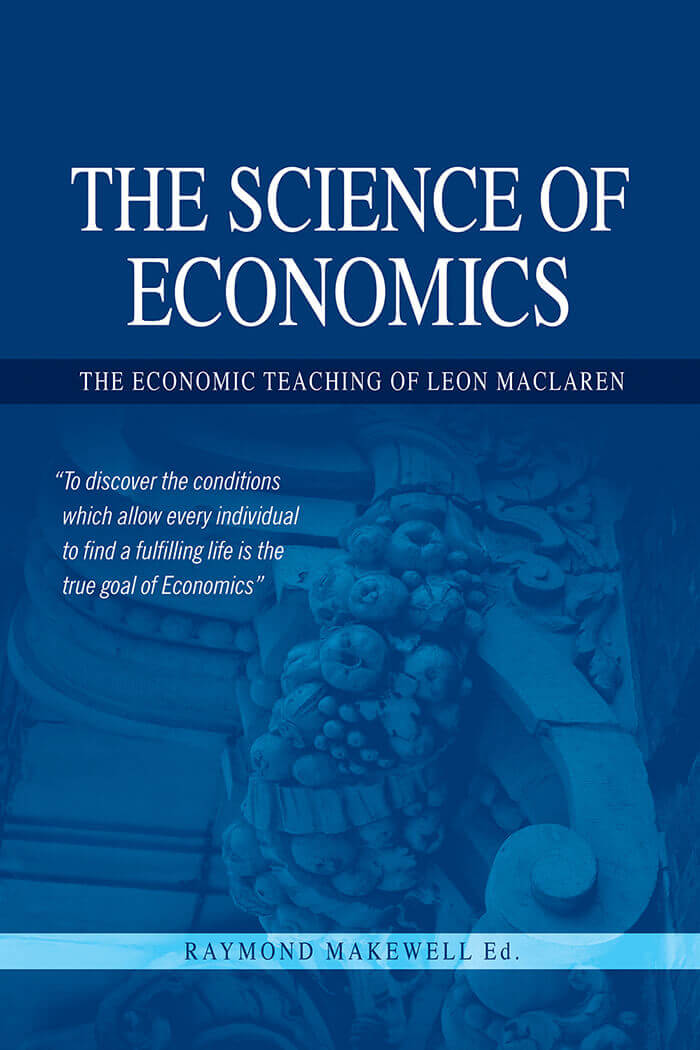“To discover of the conditions which allow every individual to find a fulfilling life is the true goal of Economics”
In The Science of Economics Raymond Makewell presents the three-year Economics course prepared by Leon MacLaren for the School of Economic Science in London in the late 1960s. Revised with contemporary, international examples, the core material remains the same.
MacLaren (1910–1994) was a barrister, politician, philosopher and (with the aid of his father, a Member of Parliament) founder of the School of Economic Science in 1937 when the world was struggling to emerge from the Great Depression. In 1939 he was selected to stand against Winston Churchill in the election that was cancelled by the outbreak of war.
Had the election not been cancelled, Churchill would have faced an awkward challenge as to why he had abandoned the principles he had so brilliantly expounded in support of Lloyd George’s People’s Budget in 1909 when he was a Liberal Cabinet Minister. These were the principles the School of Economic Science was founded to teach.
Rather like Adam Smith in his Inquiry into the Nature and Causes of the Wealth of Nations, MacLaren took his inquiry back to first principles. Instead of making supply and demand the starting point, he begins with the simple observation that all material wealth is ultimately derived from land, and, where goods are exchanged, the first requirement is trust, or a system of credit. The major characteristics of the modern economy are examined in terms of the conditions that govern how and why they evolved and how they operate today. Particular attention is given to the system of land tenure and the concepts of property evolved in the English-speaking world, the role of government in economic affairs, and the degree of economic freedom. This reveals how the current economic situation denies millions access to all that they need to work and produce wealth for themselves. Injustice is the inevitable result and poverty its inseparable companion.







